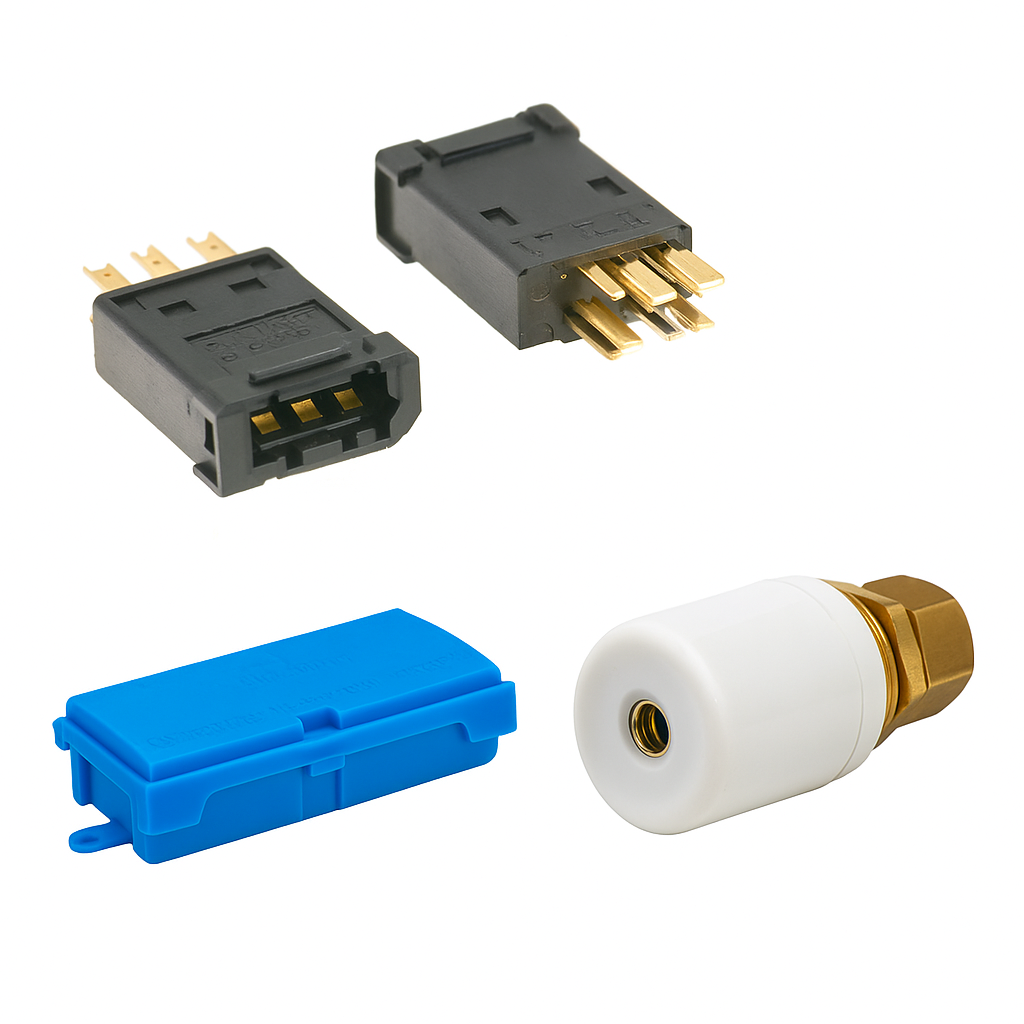
In today’s rapidly evolving world of electronics, the demand for reliable connectivity solutions has never been greater. From everyday gadgets to complex industrial automation systems, USB connectors and electrical wire connectors play a critical role in ensuring smooth performance, secure power distribution, and efficient data transfer. These connectors not only support devices but also enable innovation across communication, computing, medical, automotive, and industrial applications. Understanding the different types, functions, and benefits of these components is essential for professionals, engineers, and anyone working with electronic systems.
The Importance of USB Connectors in Electronics
Universal Serial Bus (USB connectors) are among the most common and widely used components in electronic devices. They are designed to provide seamless data transfer, power delivery, and easy plug-and-play functionality. Whether charging smartphones, connecting storage devices, or powering microcontrollers, USB connectors ensure dependable communication between hardware components.
In the electronics industry, Types of USB connectors have evolved significantly over the years to accommodate faster transfer speeds, compact designs, and high-power support. Each type is tailored for different device requirements, ranging from small consumer electronics to sophisticated industrial equipment.
Exploring the Types of USB Connectors
- Standard USB Connectors
Traditional USB-A and USB-B connectors are still widely used in laptops, desktops, printers, and networking equipment. They are recognized for their durability and ability to handle moderate data speeds and current loads. - Mini USB Connectors
The Mini USB connectors were once the standard for portable devices such as cameras, MP3 players, and older mobile phones. While less common today, they still serve in legacy electronics, offering robust connectivity for compact devices. - Micro USB Connectors
Micro USB became the go-to solution for many smartphones, tablets, and small gadgets. Despite being replaced by newer interfaces, micro USB is still essential in countless embedded systems and IoT electronics. - Type C USB Connectors
The introduction of Type C USB connectors revolutionized the way devices connect. With reversible design, higher current handling, and data transfer capabilities up to 10Gbps, USB-C is now standard in modern laptops, smartphones, and industrial electronics. Its ability to support power delivery up to 100W makes it ideal for demanding applications.
Electrical Wire Connectors in Modern Applications
While USB connectors are crucial for digital communication, electrical wire connectors ensure safe and efficient current flow in circuits. They are used extensively in electrical panels, industrial automation, renewable energy systems, and consumer electronics. By providing secure connections between conductors, these connectors reduce energy loss, prevent hazards, and enhance system performance.
Different forms of electric wire connectors are available depending on the environment, current rating, and ease of installation. Common types include crimp connectors, spade connectors, butt connectors, and terminal blocks. Each plays an important role in electronics manufacturing, repair, and large-scale electrical installations.
Wire Push Connectors: A Modern Solution
Among the most innovative types of electrical connectors are wire push connectors. These connectors allow quick, tool-free installation, making them a favorite for electricians and engineers. By simply pushing the stripped wire into the connector, a secure and reliable joint is created.
Wire push connectors are particularly valuable in electronic devices, industrial control systems, and household electrical wiring where time, safety, and efficiency are critical. They reduce installation errors, save labor time, and ensure consistent electrical performance.
Integration of USB and Wire Connectors in Electronics
The synergy between USB connectors and electrical wire connectors is evident in modern electronics. For example:
- Consumer Electronics: Smartphones, laptops, gaming consoles, and smart home devices integrate both USB and wire connectors for charging, data exchange, and safe power distribution.
- Automotive Industry: Vehicles use Mini USB connectors, Type C USB connectors, and wire harnesses to power infotainment systems, sensors, and onboard computers.
- Industrial Automation: Factories rely on wire push connectors and durable USB interfaces to support PLCs, robotics, and machine safety systems.
- Medical Equipment: Precise, reliable connectors ensure uninterrupted performance in diagnostic devices, patient monitoring systems, and laboratory instruments.
Why Quality Connectors Matter
High-quality connectors are the backbone of reliable electronic systems. Substandard or poorly designed connectors may result in:
- Signal interference and data loss.
- Overheating or short circuits.
- Reduced product lifespan.
- Increased maintenance costs.
By investing in authentic and certified USB connectors and electrical wire connectors, engineers can ensure long-term reliability, compliance with safety standards, and enhanced device efficiency.
Future Trends in USB and Electrical Connectors
The future of connectors is moving toward miniaturization, higher current handling, and smart connectivity. USB technology continues to evolve, with Type-C becoming universal due to its ability to combine video, audio, power, and data transfer in a single interface. Similarly, wire push connectors are expected to dominate due to their convenience and efficiency in industrial and residential installations.
Moreover, the rise of IoT (Internet of Things) and renewable energy systems demands advanced connectors capable of handling high data rates and robust electrical loads. These innovations ensure that connectors will remain a vital component in electronic and electrical engineering.
Conclusion
From USB connectors powering digital communication to electrical wire connectors ensuring safe current flow, these small components play an enormous role in the electronics industry. Whether it’s Mini USB connectors in portable gadgets, Type C USB connectors in modern laptops, or wire push connectors in electrical installations, choosing the right connector determines performance, safety, and reliability.
As technology advances, the importance of understanding connector types and their applications cannot be overstated. For engineers, manufacturers, and technicians, these connectors are more than just parts—they are the foundation of connectivity in an increasingly electronic world.
